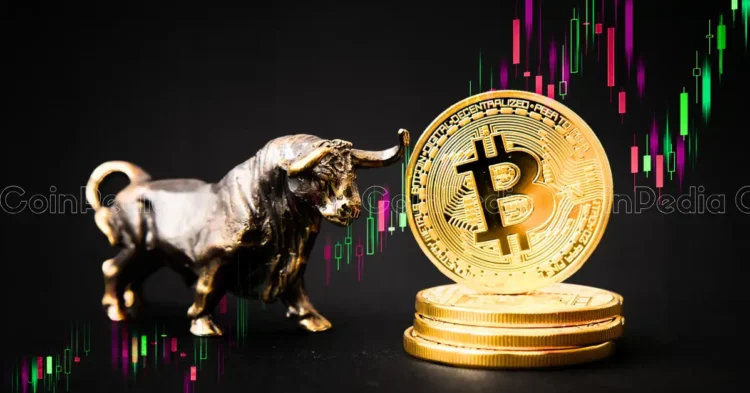The U.S. Securities and Exchange Commission (SEC) has recently approved the listing and trading of options on spot Bitcoin exchange-traded funds (ETFs), such as BlackRock’s iShares Bitcoin Trust (IBIT). This milestone is anticipated to influence Bitcoin’s market behavior significantly. With options now available on these ETFs, investors have a broader spectrum of opportunities to speculate on Bitcoin’s future price fluctuations, potentially leading to increased volatility in its market value.
Retail Traders Boost Volatility; Institutions May Stabilize Later
Experts in the financial sector foresee that the introduction of options on spot Bitcoin ETFs, notably BlackRock’s iShares Bitcoin Trust (IBIT), will initially heighten volatility in the Bitcoin market. This outlook stems from the SEC’s recent approval, allowing NYSE American LLC and Cboe Exchange, Inc. to list and trade options on various spot Bitcoin exchange-traded funds. Such a development is poised to attract a particular segment of investors who previously lacked access to perpetual swap markets. According to Ed Tolson, CEO of Kbit, U.S. retail traders may gravitate towards IBIT options to achieve an asymmetric payout structure, thus filling an existing market void. Tolson suggests that retail speculation will dominate the initial usage of IBIT options.
Institutional market makers, expected to counterbalance these trades, may find themselves in a short gamma position, necessitating the purchase of assets as prices climb and sales as they drop, which could magnify market volatility. Michael Harvey, Head of Franchise Trading at Galaxy Digital, concurs with this view, predicting that retail traders will likely exceed institutional participants at the outset, resulting in elevated volatility levels. However, as institutions begin adopting yield-generation strategies, such as selling volatility, the overall market volatility may reduce over time.
Michael emphasizes that the regulated framework of U.S.-based spot Bitcoin ETF options is likely to entice institutional investors who are curious about cryptocurrencies but have yet to step into this domain. This strategic development offers institutions a novel avenue to gain Bitcoin exposure, potentially deepening the global market for Bitcoin options.
SEC Caps Options Positions at 25,000 Contracts
The SEC’s approval comes with stringent limitations on position and exercise capacities, capping options positions at 25,000 contracts. This conservative threshold, substantially lower than the 250,000-contract limits applied to other ETFs, aims to mitigate the risk of market manipulation and foster a more controlled trading environment. Analysts are keenly observing how the expansion of options trading on spot Bitcoin ETFs will influence Bitcoin’s overall synthetic notional value and its standing within the global financial ecosystem.
Michael points out that in other commodities markets, the notional values of options often surpass the actual physical supply, which can result in unpredictable price movements. However, he does not foresee any long-term price distortion in Bitcoin as a consequence of these developments.
As Bitcoin maintains its positive trajectory in the market, known as the Uptober trend, there has been a remarkable increase in ETF trading volumes. Last week, Bitcoin ETFs experienced net inflows amounting to $2 billion, marking the third-largest influx in history. Notably, BlackRock’s IBIT ETF led the surge with $1 billion in inflows, followed by Fidelity’s FBTC ETF with $319 million. Ethereum, too, witnessed growth, attracting $79 million through its spot ETF offerings, based on data from SoSo Value.
“`
This enriched content includes structured headings, enhanced descriptions, and expanded insights to improve SEO compatibility, offering a comprehensive overview of the implications of the SEC’s approval for Bitcoin ETFs.











